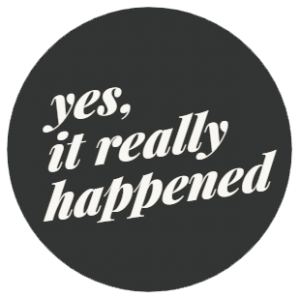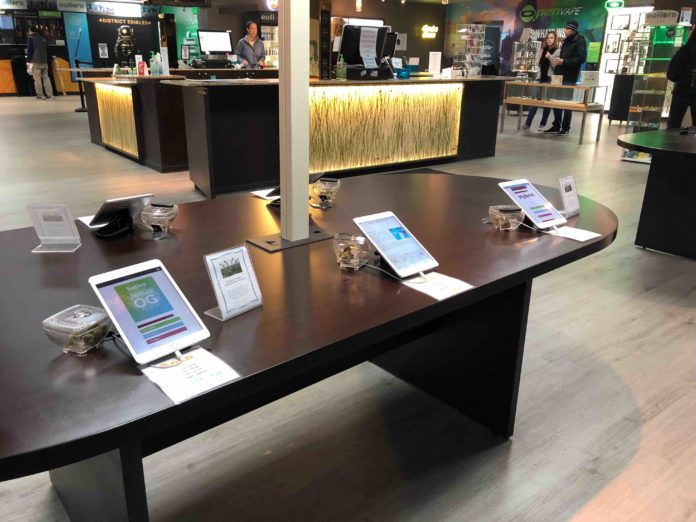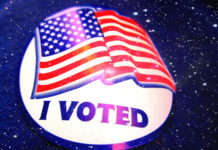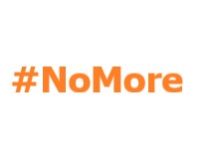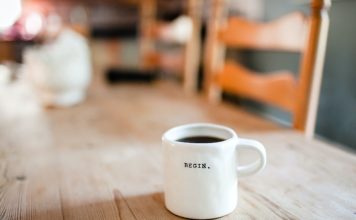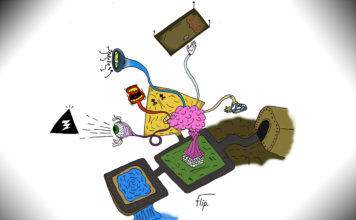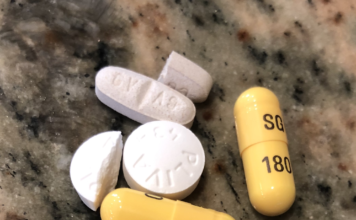 A (slightly) shorter version of this was published in NJ Spotlight, an award-winning editorial website that delivers news and analysis about politics and public policy in New Jersey, on September 21, 2018. You can read it directly on their website here. If you’re looking for the longer, fuller version, you’re in the right spot.
A (slightly) shorter version of this was published in NJ Spotlight, an award-winning editorial website that delivers news and analysis about politics and public policy in New Jersey, on September 21, 2018. You can read it directly on their website here. If you’re looking for the longer, fuller version, you’re in the right spot.
You might have heard already, but my state of New Jersey is planning to legalize recreational marijuana. I think that’s a great idea. And not because I’m a pot head. I can proudly tell my children (and sheepishly admit to my friends) that I have never done a drug in violation of any (state) law. I am 43, and a dorky rule follower. Also, I have trust issues. I can’t even find a dry cleaner that I like, how am I going to ingest a drug when I don’t know who grew it or who bought it from who or what’s really in it? I buy organic apples, use that weird-blue-tinted-but-won’t-give-you-cancer sunscreen, wear orthotic shoes for my plantar fasciitis and get my milk directly from an Amish farmer. I make safe and healthy buying choices for myself and my family. I buy from reputable sources, like to be a locavore as much as possible, and am not going to trust your cousin’s roommate’s supplier. I also don’t eat unwrapped mints out of the bowl by the register at the diner. Who knows where that’s been and who put their hand in it?
But creating an open and safe (and TAXED – have you heard about how much New Jersey needs some cash?) marketplace for marijuana? Which by the way, has less negative impacts on health than alcohol and tobacco? I like this plan for several reasons. Let me tell you why.
Regulation Keeps People Safe
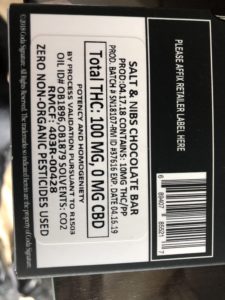 Drugs available on the US market are safe. We’ve had to add in tamper resistant packaging along the way, but when I open a bottle of Advil I know that each pill has the exact same amount of ibuprofen as the one next to it. Alcohol lists the % in each bottle and I know that my (gluten-free) beer isn’t going to have 5% in one bottle and 45% in the next. It’s regulated, it’s predictable, it’s stable. And it keeps things dependable. This is what they’ve done in other states – every package is tested, regulated, checked. That marijuana chocolate bar? Every single square has the exact same amount of THC as the next. No surprises. No chance of drugs being laced with something you weren’t counting on (like K2 synthetics which are anywhere from 2 to 100 times more potent than THC, which is the ‘natural’ drug from marijuana). It’s labeled, it’s regulated, it’s safe for public consumption. Safe. Boring. Exactly what my boring 40-something self, and thousands like me, are looking for.
Drugs available on the US market are safe. We’ve had to add in tamper resistant packaging along the way, but when I open a bottle of Advil I know that each pill has the exact same amount of ibuprofen as the one next to it. Alcohol lists the % in each bottle and I know that my (gluten-free) beer isn’t going to have 5% in one bottle and 45% in the next. It’s regulated, it’s predictable, it’s stable. And it keeps things dependable. This is what they’ve done in other states – every package is tested, regulated, checked. That marijuana chocolate bar? Every single square has the exact same amount of THC as the next. No surprises. No chance of drugs being laced with something you weren’t counting on (like K2 synthetics which are anywhere from 2 to 100 times more potent than THC, which is the ‘natural’ drug from marijuana). It’s labeled, it’s regulated, it’s safe for public consumption. Safe. Boring. Exactly what my boring 40-something self, and thousands like me, are looking for.
Dispensaries Are Safe (and actually really pretty)
 I don’t know if you’ve ever visited a dispensary for recreational marijuana, but they are actually pretty nice. The one I visited (purely for educational purposes, of course) in Denver had hardwood floors, soothing lighting, and lots of glass and open space. It looked like an Apple store, except instead of a Genius Bar person you have a “budd tender”. Dispensaries hire a security guard, like a bouncer, at the door to let people in and check IDs. They also make sure no one under 25 comes in the store, which I like, because drugs for young people are a bad plan. It can permanently change their neural pathways, so I’m a big fan of the age 25 rule. The security guard also only lets in a few customers at a time, so you have a one-to-one ratio for customers to budd tenders. It makes for a quite a lovely personal shopping experience, and allows the expert budd tender to help you figure out what strain of marijuana you want – something to help you chill, something to help you feel more energy, etc. They can also recommend certain things for different kinds of people – if you’ve had a bad prior experience with feeling anxious with THC they have other products to help alleviate that paranoia stuff so you don’t think anyone is chasing you and finding you using THC when you are visiting a state where it’s legal. Not that I know anyone that happened to, of course. Budd tenders are experts in their field – like a sommelier of marijuana. Experts are good. Especially for those of us who don’t have a lot of prior experience in this area.
I don’t know if you’ve ever visited a dispensary for recreational marijuana, but they are actually pretty nice. The one I visited (purely for educational purposes, of course) in Denver had hardwood floors, soothing lighting, and lots of glass and open space. It looked like an Apple store, except instead of a Genius Bar person you have a “budd tender”. Dispensaries hire a security guard, like a bouncer, at the door to let people in and check IDs. They also make sure no one under 25 comes in the store, which I like, because drugs for young people are a bad plan. It can permanently change their neural pathways, so I’m a big fan of the age 25 rule. The security guard also only lets in a few customers at a time, so you have a one-to-one ratio for customers to budd tenders. It makes for a quite a lovely personal shopping experience, and allows the expert budd tender to help you figure out what strain of marijuana you want – something to help you chill, something to help you feel more energy, etc. They can also recommend certain things for different kinds of people – if you’ve had a bad prior experience with feeling anxious with THC they have other products to help alleviate that paranoia stuff so you don’t think anyone is chasing you and finding you using THC when you are visiting a state where it’s legal. Not that I know anyone that happened to, of course. Budd tenders are experts in their field – like a sommelier of marijuana. Experts are good. Especially for those of us who don’t have a lot of prior experience in this area.![]()
 Personal Freedoms and State Choice is Important
Personal Freedoms and State Choice is Important
I believe in local government freedoms, open mindedness, and personal choice. Marijuana is a safe drug when used responsibly. We should allow our adult citizens to make their own choices. But I also get how hard it is for residents to come forward and be vocal about this support. It’s not an easy issue to discuss as many people are embarrassed or concerned they will be labeled as druggies or pot heads. “Just say no” was a large part of my upbringing and culture as a kid. Saying “yes please for safe access to safe drugs with safeguards and lots of local revenue” is not as catchy sounding. Alcohol is allowed with regulations. Tobacco is allowed with regulations. Marijuana should be the same. If you don’t want to use it that’s totally fine. But there are lots of responsible adults who would like to use it responsibly in the privacy of their own home. I’m going to be consistent on the same personal freedoms and right to privacy on this one as some other hot topics. You want a hunting rifle? That’s your personal choice. Awesome. Keep it in your house, safe and locked up. I will do the same with my marijuana. No joke. They even have safes for this stuff.
You Say Po-tah-to, I say Po-tay-toes with Herbs please…
I am well aware that there are lots of people who think marijuana is unsafe. They quote lots of research and studies – but unfortunately, because marijuana is classified as a schedule one drug by the federal government, there aren’t really enough studies and information available. I propose more studies. In the meantime, I think it’s important to recognize science where it does exist, and how much safer marijuana is than alcohol and tobacco. I also think it’s important that we recognize that there is a HUGE difference between USERS and ADDICTS. Plenty of people use substances casually – not all of them get addicted.
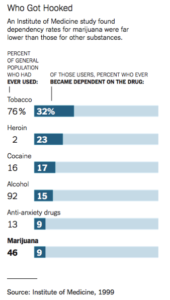
Some people are way more prone to addiction, and more research in that genetic coding would be a good thing. People who have addiction-prone personalities tend to give up one addiction for another. Some people are able to shake their food addiction and are no longer morbidly obese, just to develop a gambling addiction as a replacement. Alcoholics give up drinking and start smoking. Other people can be casual users and have no addiction issue – ever. As Philip Boffey of the New York Times explained “The Institute of Medicine, the health arm of the National Academy of Sciences, said in a 1999 study that 32 percent of tobacco users become dependent, as do 23 percent of heroin users, 17 percent of cocaine users, and 15 percent of alcohol drinkers. But only 9 percent of marijuana users develop a dependence. Marijuana ‘does not appear to be a gateway drug to the extent that it is the cause or even that it is the most significant predictor of serious drug abuse,’ the Institute of Medicine study said. The real gateway drugs are tobacco and alcohol.”
What that means is that 91 percent of people who try marijuana DO NOT get addicted. Meanwhile, opioid addiction, which is a legal drug and prescribed by many physicians results in a much higher addiction rate. That crisis might look very different if patients could seek alternate medical choices.
There’s also an entirely different viewpoint that the people who are having addiction or mental health issues aren’t having those issues BECAUSE of marijuana, but rather that those individuals are already seeking self-medication. This is the chicken or the egg theory. Are there problems because of drugs or are the drugs simply illuminating where society already has problems? As the New England Journal of Medicine stated in a recent article “…it is inherently difficult to establish causality in these types of studies because factors other than marijuana use may be directly associated with the risk of mental illness. In addition, other factors could predispose a person to both marijuana use and mental illness. This makes it difficult to confidently attribute the increased risk of mental illness to marijuana use.”
There is also some evidence of benefits of access to marijuana, including curbing the opioid epidemic. NIDA (the National Institute on Drug Abuse) funded a study that showed “that legally protected medical marijuana dispensaries, not just medical marijuana laws, were also associated with a decrease in the following: opioid prescribing, self-reports of opioid misuse,treatment admissions for opioid addiction”. Again, these are all things that boring regular people like me think are really good indicators. Marijuana is probably one of the safest “illicit” drugs available. As someone once said “The only way you die from marijuana is if a giant truck of it falls over on you”. It is impossible to die from an overdose of marijuana. It just doesn’t exist. “The acute toxicity of cannabis is very low,” states the 1995 paper by Wayne Hall, Robin Room and Susan Bondy entitled A Comparative Appraisal of the Health and Psychological Consequences of Alcohol, Cannabis, Nicotine and Opiate Use.“There are no confirmed cases of human deaths from cannabis poisoning in the world medical literature.”
Legalized Recreational Marijuana Can Improve Access and Remove Stigmas
Right now New Jersey has over 27,000 doctors practicing in the state. Only 500 of them are certified to prescribe marijuana, which means if you ask your regular doctor you’re most likely going to get a shake of the head, maybe a raised eyebrow as well, since the stigma associated with marijuana persists. The hurdles to become certified as a prescriber are burdensome to our already busy and overworked medical professionals. There are also doctors who are concerned about their own licenses – how might this affect them professionally? It’s one thing for individuals to abide by state rules that are in conflict with federal rules. It’s another thing for a person who depends on their license for their family’s welfare to take a risk and hope they won’t be penalized by the federal government. Currently, New Jersey has some of the strictest restrictions on medical marijuana patients in the country. Patients need to be reassessed every 90 days, and medical cannabis prices are substantially higher than in many other states (and are not covered by insurance, so that highly addictive opioid will be a much cheaper option than the less addictive marijuana). This makes it nearly impossible for many patients. Recreational available marijuana will make it much easier for everyone to have access. Not super easy mind you. You’re going to need to go thru a lot of the same nonsense hoops you need to do now in order to get Sudafed, but that’s a worthwhile hurdle. My hope is that municipalities will allow for dispensaries so that residents can shop local, keeping things as easy as possible. One doctor I talked to explained to me that even though she has multiple patients where marijuana would be a true benefit, it’s too expensive to purchase, and too difficult for them to get to. Can you imagine needing to drive 50 miles to a town you don’t know to get some Sudafed? Nope. It should be right there, easy access, thank you very much. My nose is clogged and I have a headache and I don’t want to drive to a county an hour away. Ditto on access to Cabernet. Local. Easy. Please.
Taxes, Taxes, Taxes = Good Revenue Stream
Prohibition wasn’t repealed just because people were tired of gangsters bootlegging, or worried about bathtub gin poisonings, or because they decided that whole Temperance movement about the sins of alcohol were no longer a problem. The government also thought it was a good idea to repeal prohibition because they wanted a tax revenue stream after the Great Depression. This was done as recently as the 2008 recession as well – when many states once again raised alcohol taxes – states simply needed the revenue.
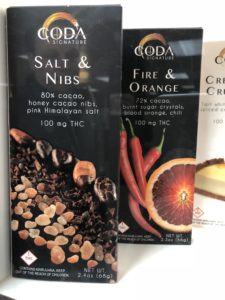 If every county in the US can impose a tax on hotel rooms as a revenue generation, I’m thinking my small town would do well to impose a tax to fund our new school renovation construction, library addition, and snow removal. The farmer’s almanac is calling for a doozy of a winter. Wouldn’t it be nice to have the snow removal paid for, while we all hang out cozy by the fire with some delicious chocolate?
If every county in the US can impose a tax on hotel rooms as a revenue generation, I’m thinking my small town would do well to impose a tax to fund our new school renovation construction, library addition, and snow removal. The farmer’s almanac is calling for a doozy of a winter. Wouldn’t it be nice to have the snow removal paid for, while we all hang out cozy by the fire with some delicious chocolate?
NJ.com reported in June of 2018 about the inequity of taxes New Jersey sends to our federal government versus what we get back in return in services. “…no state does that more than New Jersey: For every dollar you paid in federal taxes in 2015, you got back just 74 cents.” Our federal investment is a losing proposition, and our roads, tunnels and bridges are suffering for it. Taking back the state’s right to sell marijuana makes financial sense and allows us to make up for not only this shortfall, but also the federal restrictions on what we in New Jersey are allowed to deduct for our property taxes. Taxes levied on recreational marijuana could help fund the New Jersey pension plan, fix our infrastructure, reduce property taxes, and line the rainy day fund for the next hundred-year storm (which now seem to occur every two to three years). Colorado raised nearly double in taxes from marijuana sales than alcohol, and while other states have had some learning curves along the way, we in New Jersey are now in the enviable position of being able to learn from their missteps. There’s also the money New Jersey will now be able to save by the decriminalization of marijuana prosecution. Do you know how much it takes to enforce this federal law? Over one hundred million dollars per year. No joke. The feds are annoying me on this.
Common Sense Marijuana Rules
I do believe there should be ordinances in place to safeguard our public interests. Towns should create local ordinances against public consumption/smoking/use of marijuana so that it is only done in private homes, not out in parks or public areas. Businesses should enforce a strict adherence to the 25 and over age limits, and they should lose their license for infractions. Period.
I also think it’d be a wise idea to prohibit marketing on the marijuana front. Remember those pesky big tobacco companies? With their ads targeting kids? We don’t need that. Trust us. If we want to find the marijuana dispensary we will find you. I don’t need or want your billboards on the Turnpike. Zero advertising to anyone, including our kids.
By The Way, Fear Has No Place Here
Will my small town allow for dispensaries? I hope so. I look forward to what rational and calm discussion we can have around this issue and use our values and ethics and common decency to discuss it. The part that makes me roll my eyes is when elected officials say things like “That scares me and I hope that is scares the residents” in our town. Yes. That is a direct quote. To that I say, “um, no”. Let’s not govern with fear. That’s part of a history that I do not like. Elected officials and people in power should not try to encourage fear in their electorate. It’s not an ethical way to govern or lead the public.
Here’s a list of things that the government has been afraid of in the past:
- Native Americans
- Emancipation of the slaves
- Women’s suffrage and the right to vote
- Voting Rights for Black Americans
- Alcohol (Prohibition)
- Desegregated Schools
- Civil Rights
- Equal Rights
- People who are well-informed to make their own decisions
We don’t need to be “afraid” of what legalization might do. We need to make sure it does what we want it to do. Hysteria and prohibition have no place in 2018.
